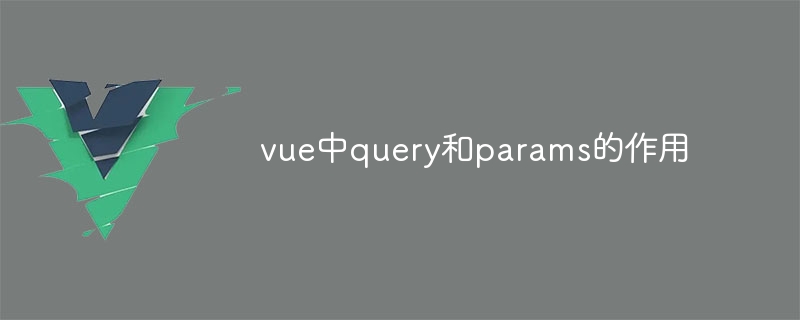
In Vue routing, query is used to pass additional information that does not affect the page route, such as /products?page=2&sort=price; params is used to define the parameter part of the page route, such as /products/:id.

The role of query and params in Vue
In Vue routing, query and params Play different roles and serve different purposes.
query
this.$route.query[parameter name]
<code>/products?page=2&sort=price</code>
In the component, these additional parameters can be accessed using the query object:
export default {
data() {
return {
currentPage: this.$route.query.page,
sortOrder: this.$route.query.sort,
}
}
}params
this.$route.params[parameter name]params Used to extract dynamic parameters from the URL path, for example: <code>/products/:id</code>
In the component, you can use the params object to access these dynamic parameters:
export default {
data() {
return {
productId: this.$route.params.id,
}
}
}Summary
query and params have different purposes in Vue routing. query is used to pass additional information, while params is used to define the parameter portion of the page route. By understanding their purpose, you can effectively manage URLs and routes in your Vue application.
The above is the detailed content of The role of query and params in vue. For more information, please follow other related articles on the PHP Chinese website!